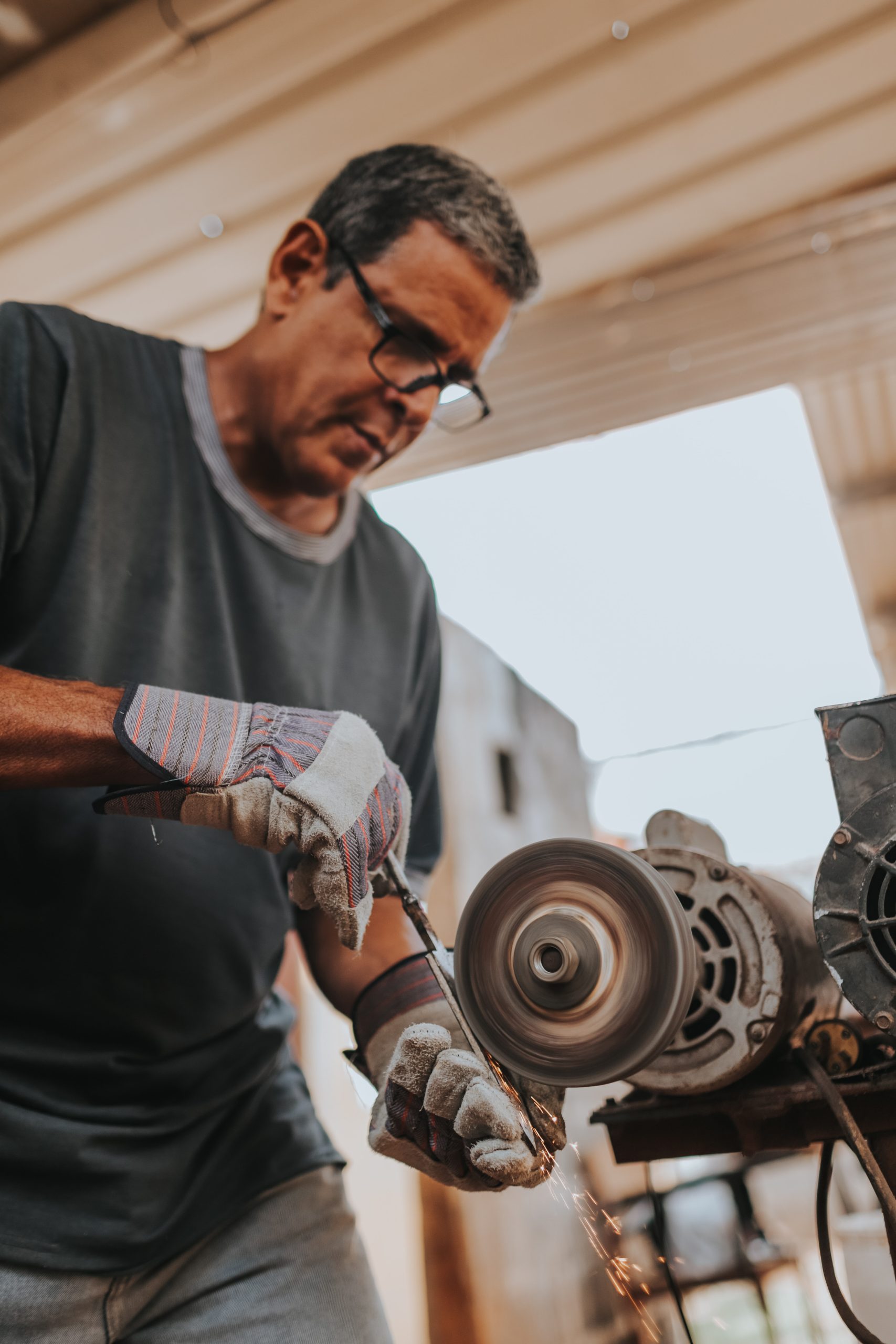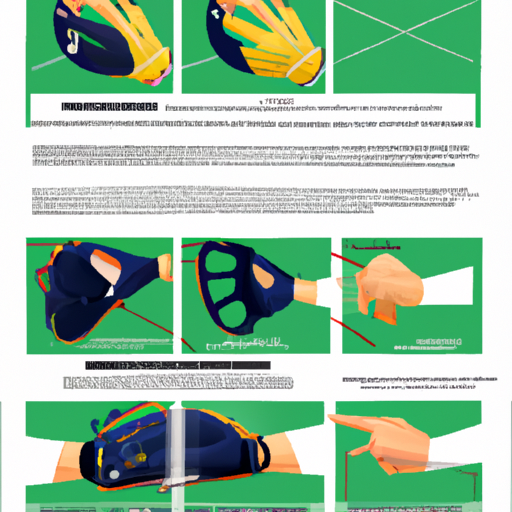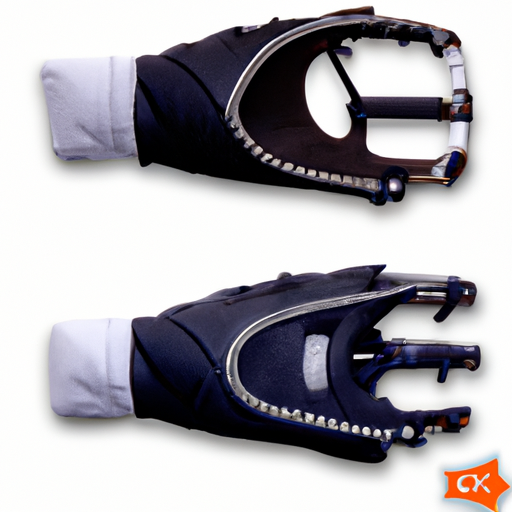In the world of baseball, one of the most important accessories for a batter is their batting gloves. They provide grip, protection, and comfort, allowing players to perform at their best. One key decision to make when choosing batting gloves is whether to go for long cuff or short cuff. Both options have their advantages and it really comes down to personal preference. In this article, we will explore the differences between long cuff and short cuff batting gloves, helping you make an informed decision for your next game.
Long Cuff Vs. Short Cuff Batting Gloves
Batting gloves are an essential piece of equipment for any serious baseball or softball player. They provide comfort, protection, and grip, enhancing a player’s performance at the plate. When it comes to choosing the right batting gloves, one of the key decisions you need to make is whether to go for long cuff batting gloves or short cuff batting gloves. Both options have their advantages and disadvantages, so let’s dive in and explore the differences between the two.
What are batting gloves?
Before we delve into the specifics of long cuff and short cuff batting gloves, let’s first establish what batting gloves are and why they are important. Batting gloves are specially designed gloves that players wear during batting practice and games. They provide several benefits, including enhanced grip, better control, improved comfort, and protection against blisters and hand injuries. These gloves typically have a synthetic palm, reinforced areas to withstand the impact of hitting, and a snug fit to ensure a secure grip on the bat.
Importance of wrist protection in batting
Wrist protection is crucial in batting as it helps prevent injuries and provides stability during the swing. When swinging a bat, the wrists are subjected to significant stress and strain. The repetitive motion and impact can lead to wrist discomfort, sprains, or even more severe injuries. Batting gloves, specifically those with longer cuffs, offer additional support to the wrists, reducing the risk of injury while enhancing stability and confidence in your swing.

Long cuff batting gloves: Pros and Cons
Long cuff batting gloves, as the name suggests, feature extended cuffs that cover a larger portion of your forearm. These gloves provide extensive wrist protection and stability. The extended cuff acts as a support system for your wrist, reducing the risk of hyperextension or strain during a powerful swing. Long cuff gloves are particularly beneficial for players who have had previous wrist injuries or those who prioritize maximum protection. However, one downside to long cuff gloves is that they can restrict wrist mobility to some extent. This can make it slightly harder to achieve a full range of motion and flexibility during the swing.
Short cuff batting gloves: Pros and Cons
On the other hand, short cuff batting gloves have a shorter cuff that ends below the wrist, allowing for more freedom of movement. These gloves are favored by players who prioritize flexibility and a greater range of motion over maximum wrist protection. The shorter cuff allows for a natural wrist movement during the swing, enabling players to generate power and bat speed more effortlessly. However, with the reduced coverage, short cuff gloves may not offer as much support or protection to the wrists.

Design and fit differences
Apart from the cuff length, long cuff and short cuff batting gloves also differ in their overall design and fit. Long cuff gloves typically have a snugger fit around the wrists, ensuring a secure and locked-in feel. This tight fit helps minimize shifting or slipping of the gloves during intense swings, providing a more consistent grip. On the other hand, short cuff gloves often feature a more relaxed fit, allowing for greater flexibility and comfort. The looser fit may provide a more natural feel but can also result in some movement or readjustment during the swing.
Material variations
Batting gloves are available in a variety of materials, each offering different advantages and characteristics. Long cuff and short cuff gloves may be made from similar materials, such as synthetic leather or sheepskin. These materials provide durability, breathability, and a soft grip on the bat. However, some long cuff gloves may incorporate additional padding or reinforcement in specific areas, offering enhanced protection against impact. Short cuff gloves, on the other hand, may focus more on breathability and flexibility, utilizing lightweight materials that allow for a better feel of the bat.

Impact on grip and control
One of the primary functions of batting gloves is to provide an enhanced grip on the bat. Gripping the bat firmly and maintaining control throughout the swing is crucial for generating power and making solid contact with the ball. When it comes to the impact on grip and control, the choice between long cuff and short cuff gloves often comes down to personal preference. Some players may find that the extended wrist coverage of long cuff gloves enhances their grip and control, while others may prefer the freedom of movement and increased bat feel provided by short cuff gloves. Ultimately, the key is to choose gloves that enable you to maintain a secure grip without sacrificing flexibility or comfort.
Comfort and flexibility
Comfort and flexibility are essential factors to consider when choosing batting gloves. Long cuff gloves generally provide a snug, secure fit that minimizes any potential slippage or movement during the swing. The extended coverage can offer an added feeling of security and stability, which can be particularly beneficial for players with wrist concerns. However, the longer cuff may limit wrist mobility slightly. In contrast, short cuff gloves offer greater freedom of movement, allowing players to achieve a more natural swing and maximum flexibility. This freedom comes at the expense of some wrist support, so it’s crucial to find a balance between comfort and protection based on your individual needs.

Price range comparison
When it comes to price, both long cuff and short cuff batting gloves can vary significantly depending on the brand, quality, and added features. Generally, long cuff gloves tend to be slightly more expensive due to the additional materials and design elements that provide increased wrist protection. Short cuff gloves, being less complex in design, may be available at a lower price point. However, it’s important to prioritize the quality and durability of the gloves rather than solely focusing on price. Investing in a high-quality pair of batting gloves that meets your specific needs will ultimately prove more beneficial in the long run.
Player preferences and recommendations
Ultimately, the decision between long cuff and short cuff batting gloves comes down to personal preference and individual playing style. Some players may prioritize wrist protection and stability, making long cuff gloves their go-to choice. Others may value flexibility and a natural feel, favoring short cuff gloves. It’s essential to try out different gloves and assess how they feel during practice sessions or simulated swings before settling on a preference. Additionally, seeking advice from coaches, teammates, or experienced players can provide valuable insights and recommendations based on their own experiences.
In conclusion, both long cuff and short cuff batting gloves have their advantages and disadvantages. Long cuff gloves offer increased wrist protection and stability but may limit wrist mobility. Short cuff gloves provide greater freedom of movement and flexibility but offer less wrist support. With various designs, materials, and fits available, it’s important to choose batting gloves that prioritize comfort, grip, and wrist safety based on your individual needs and preferences. Remember, finding the right pair of batting gloves can make a significant difference in your performance at the plate, so take the time to explore and experiment before making your selection. Happy swinging!
